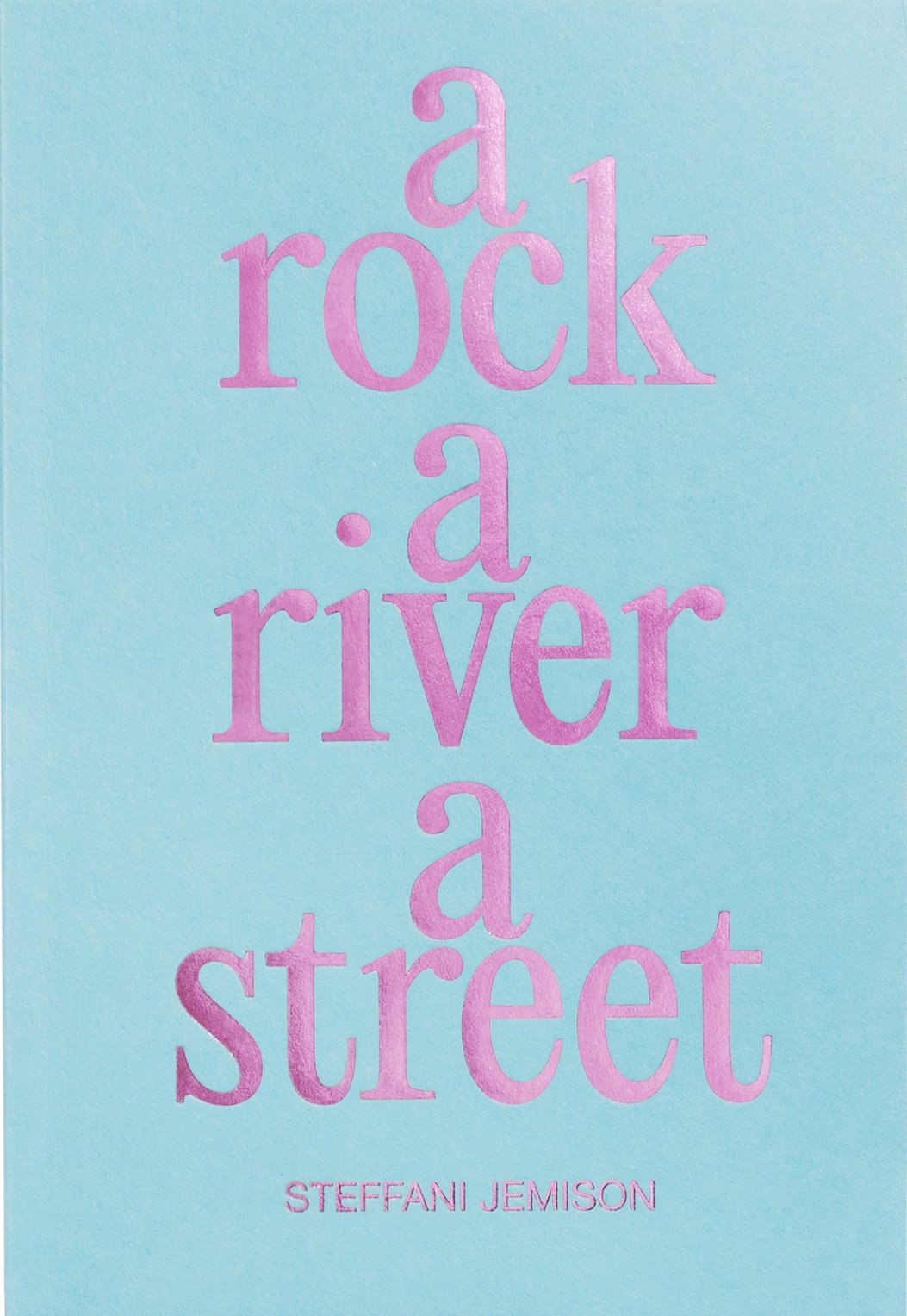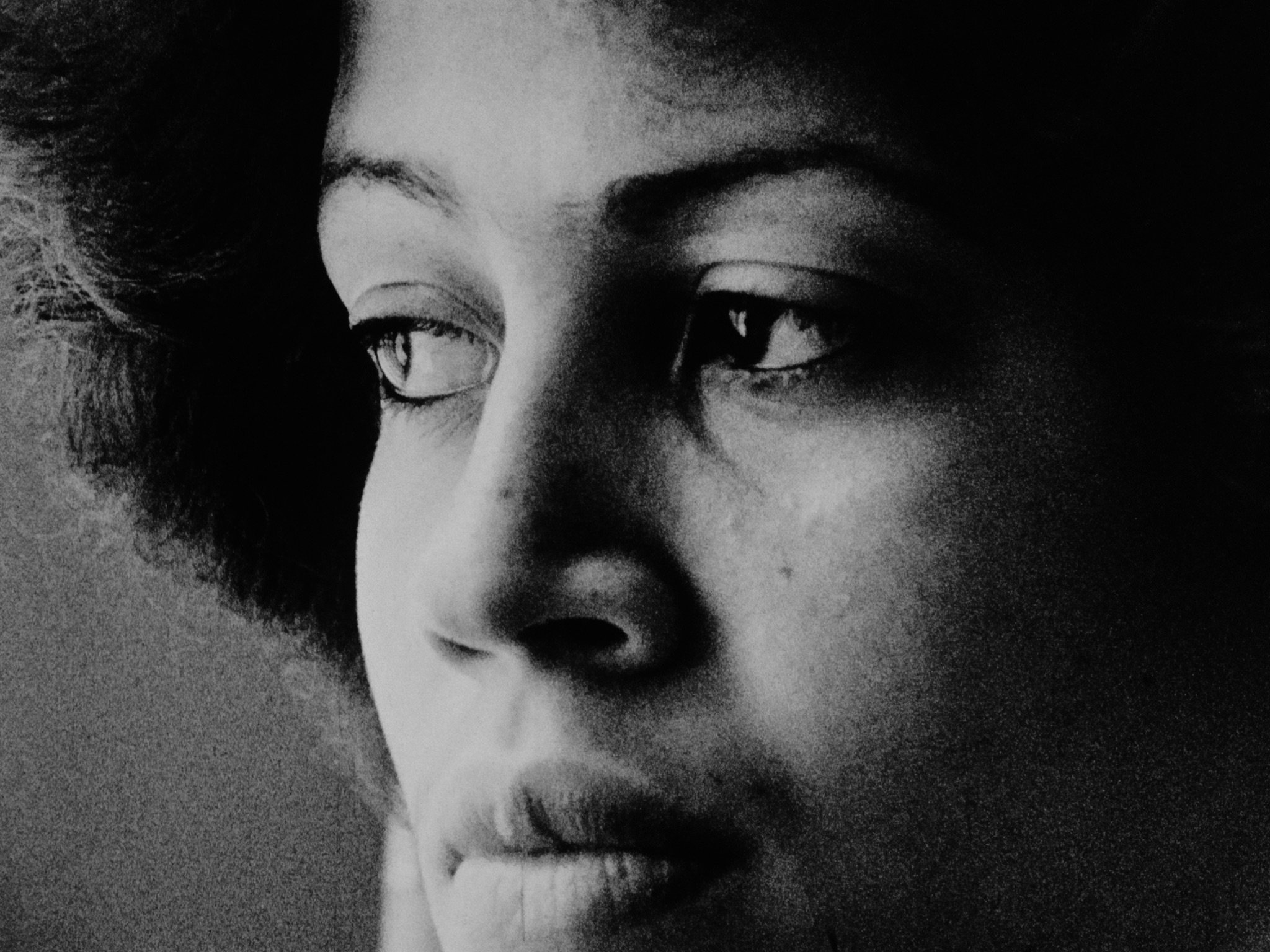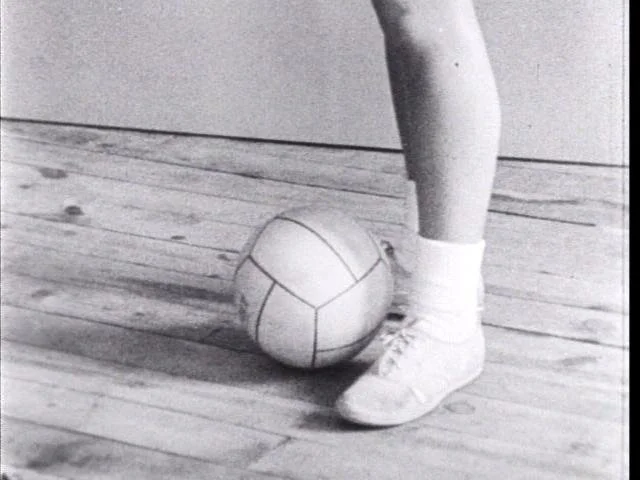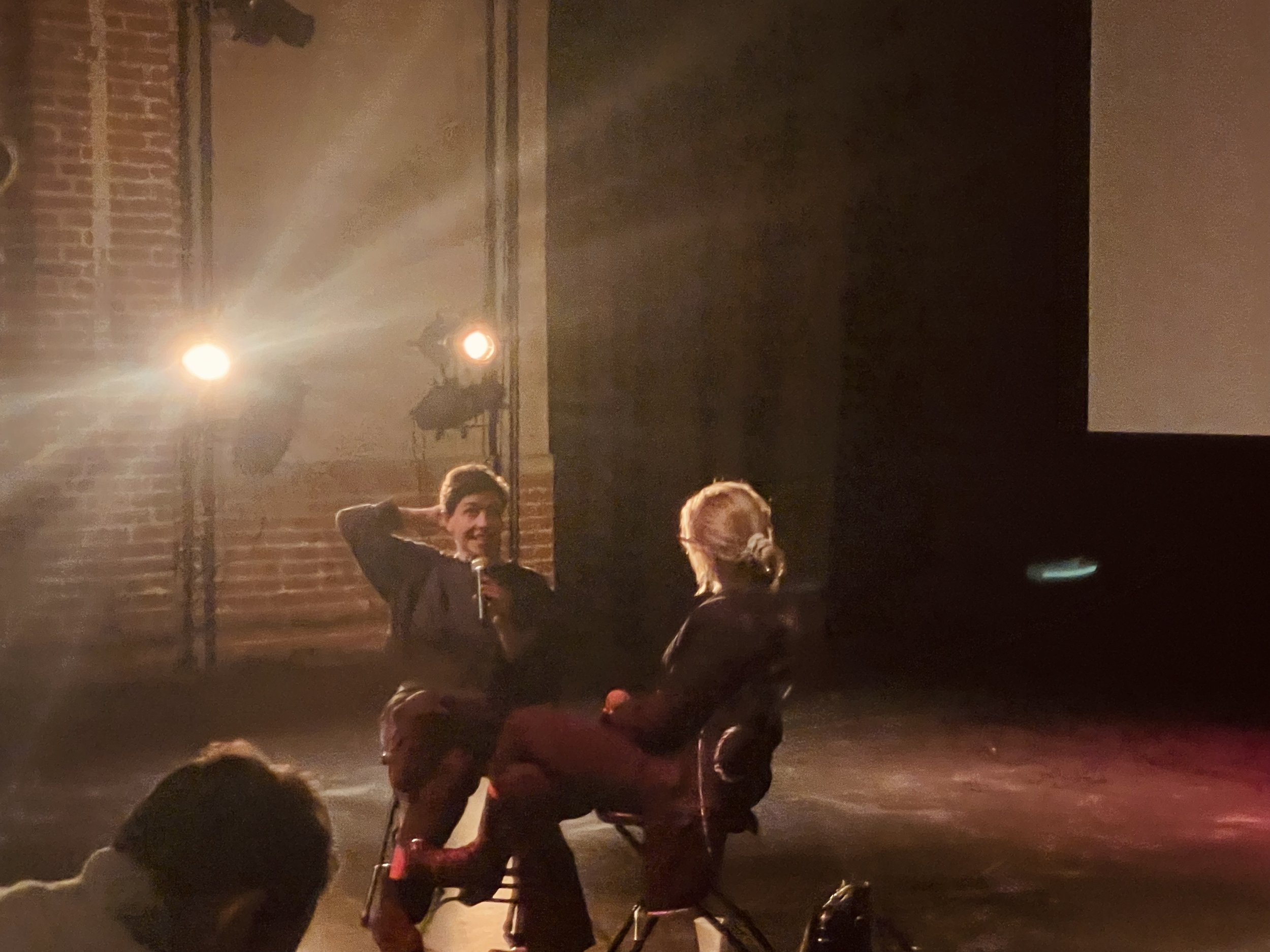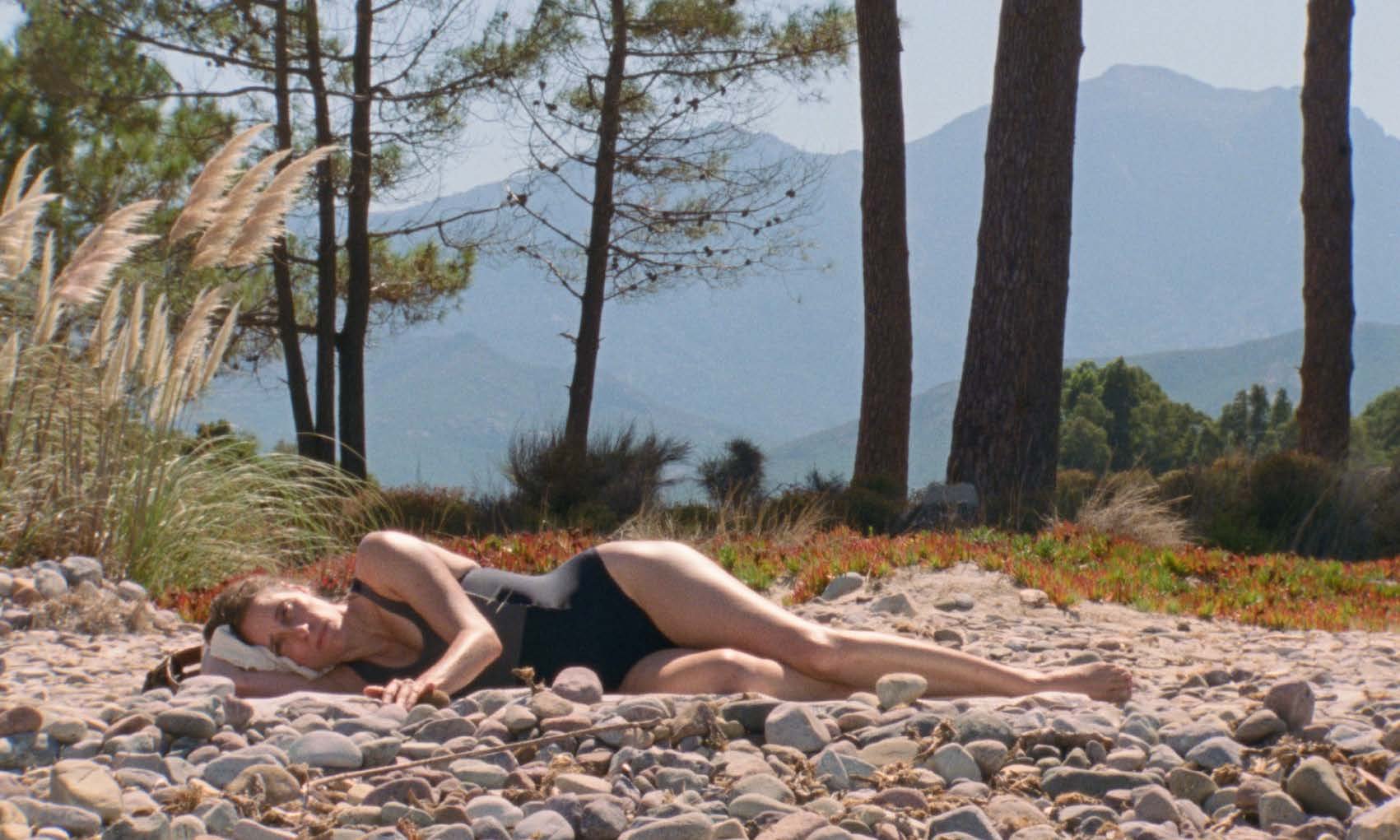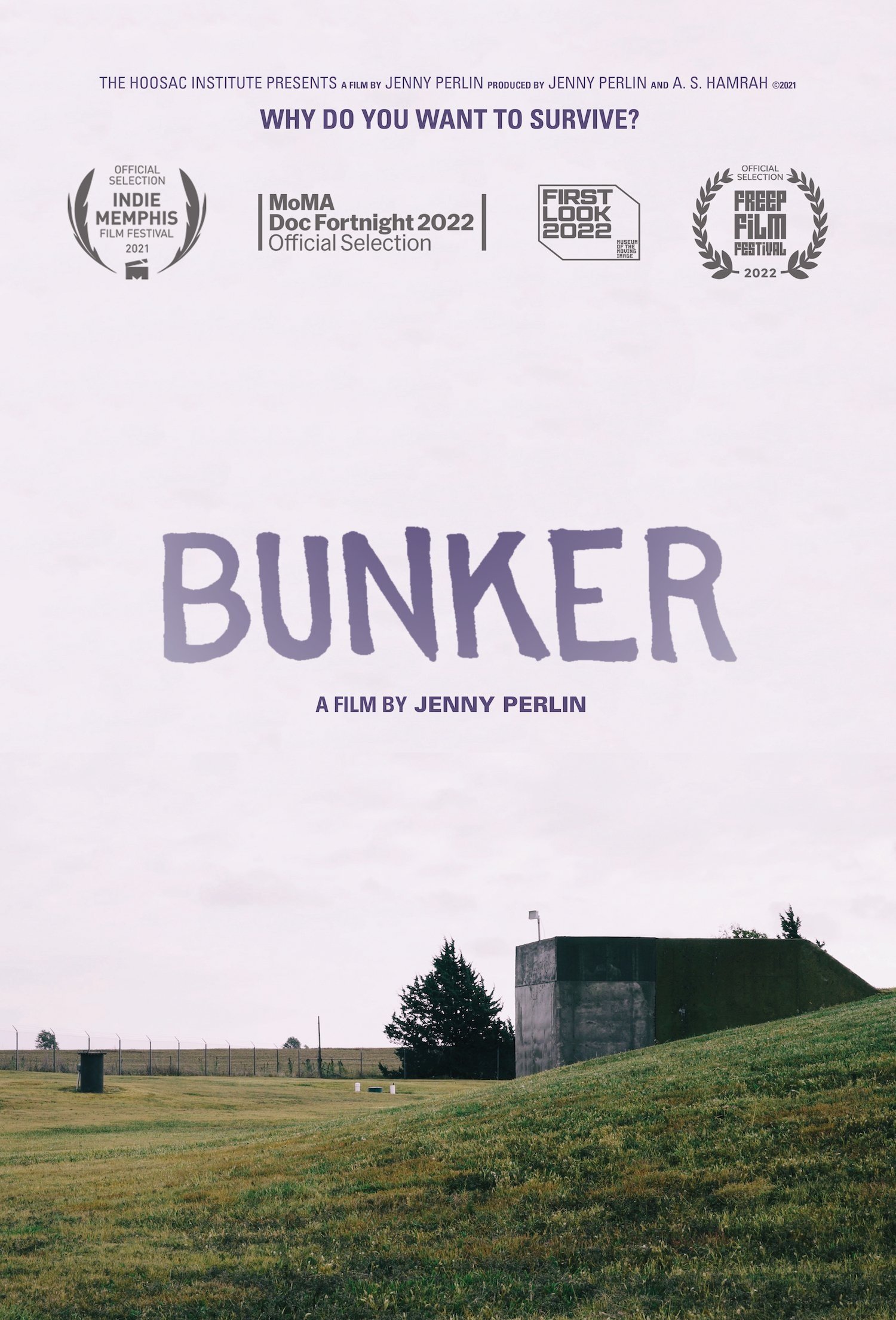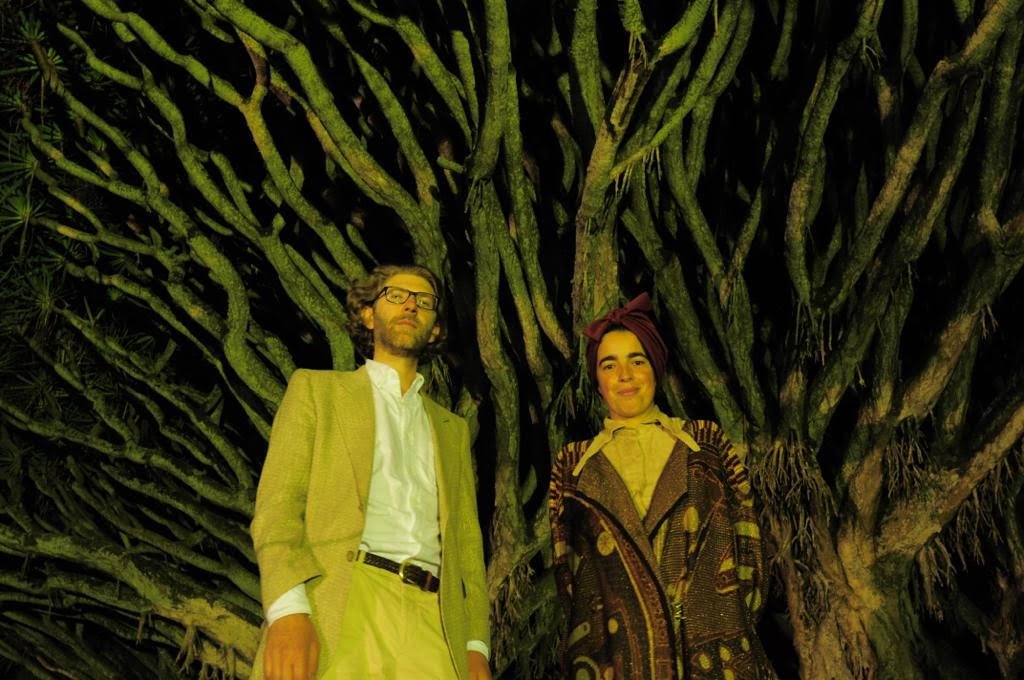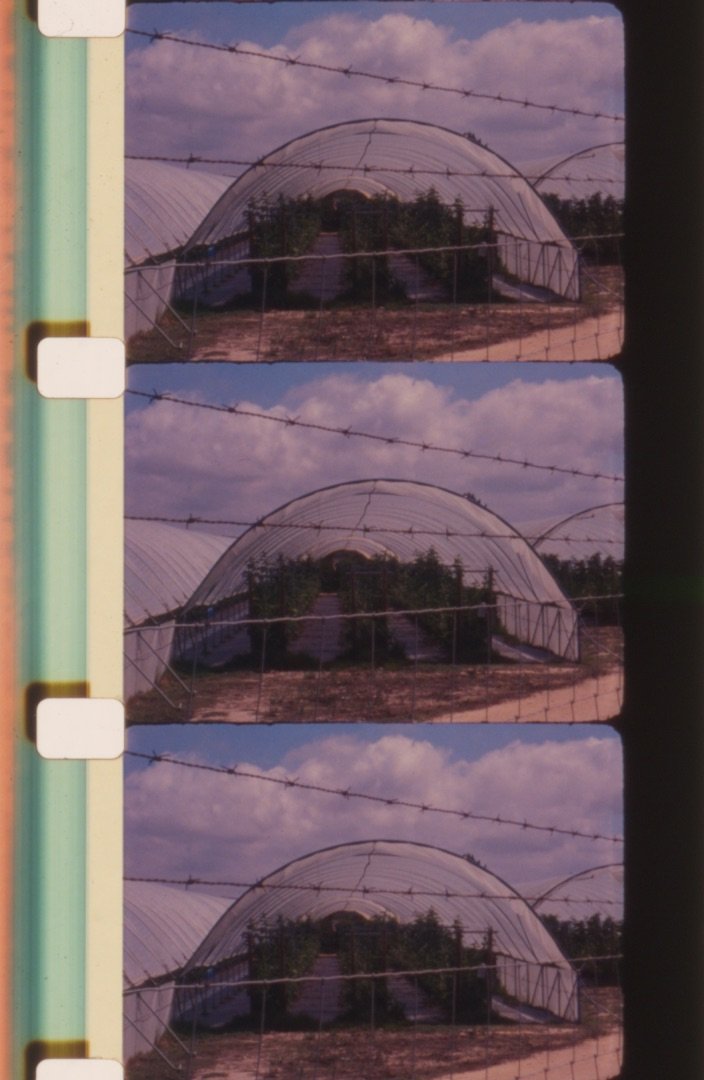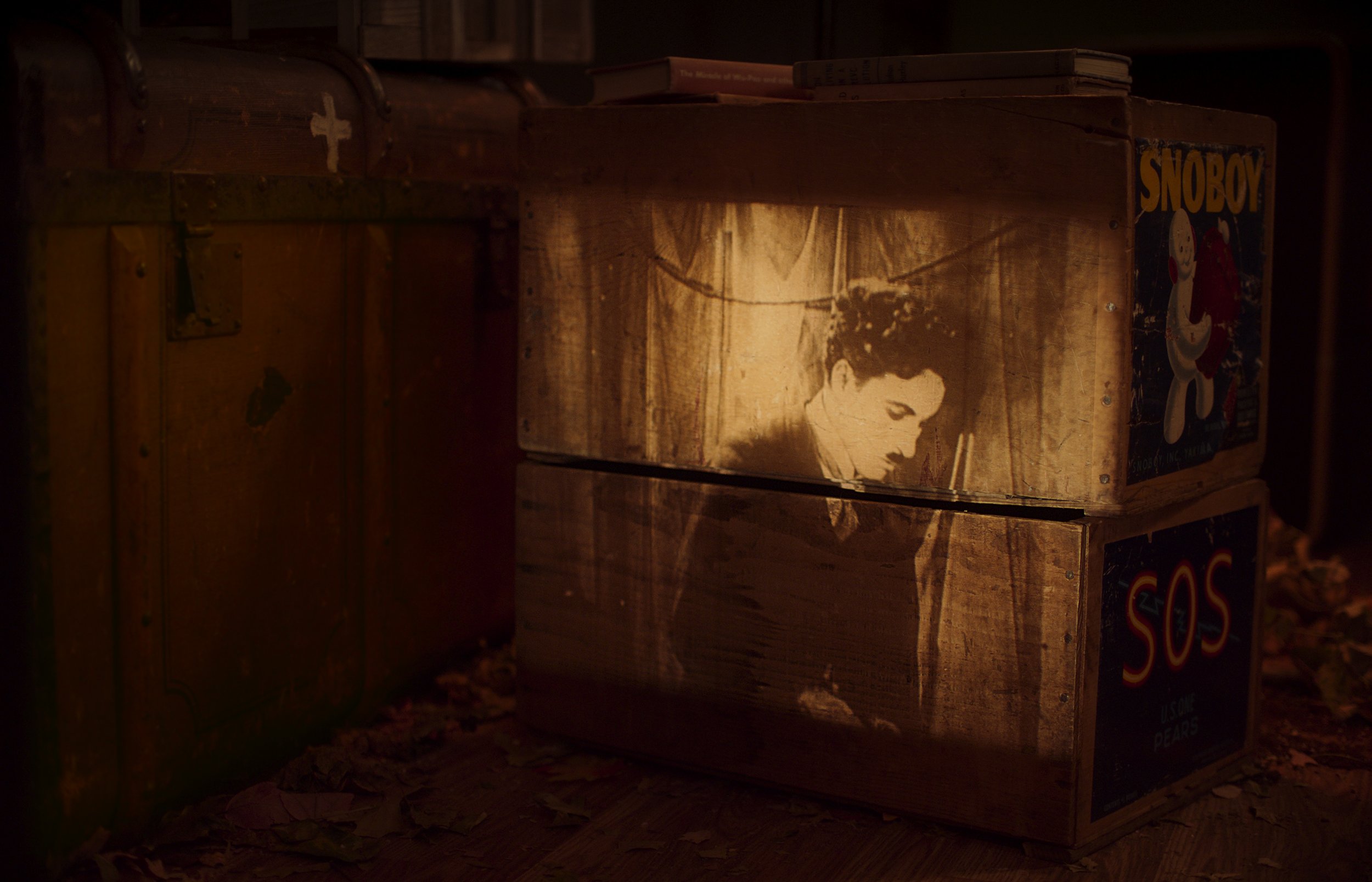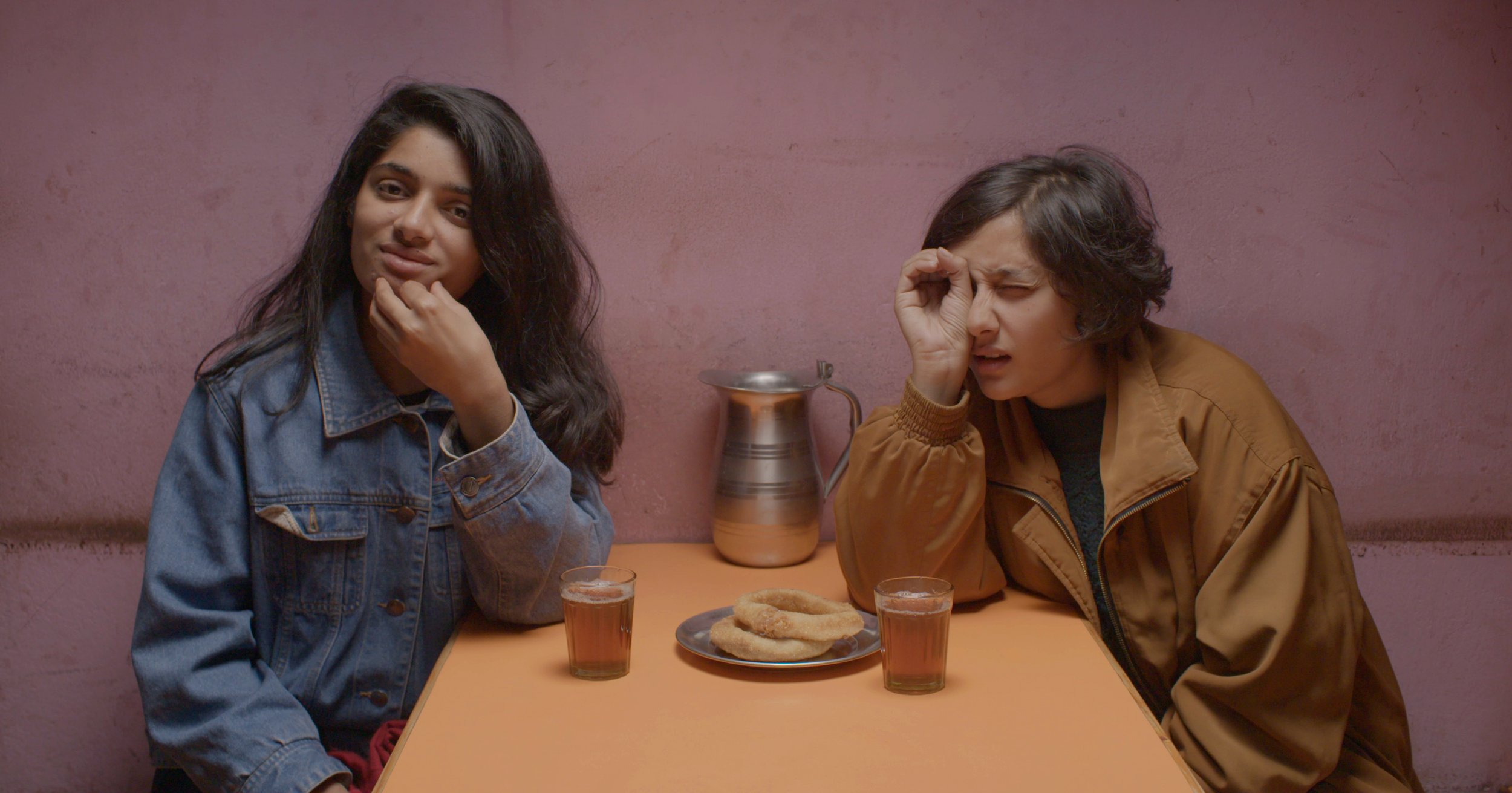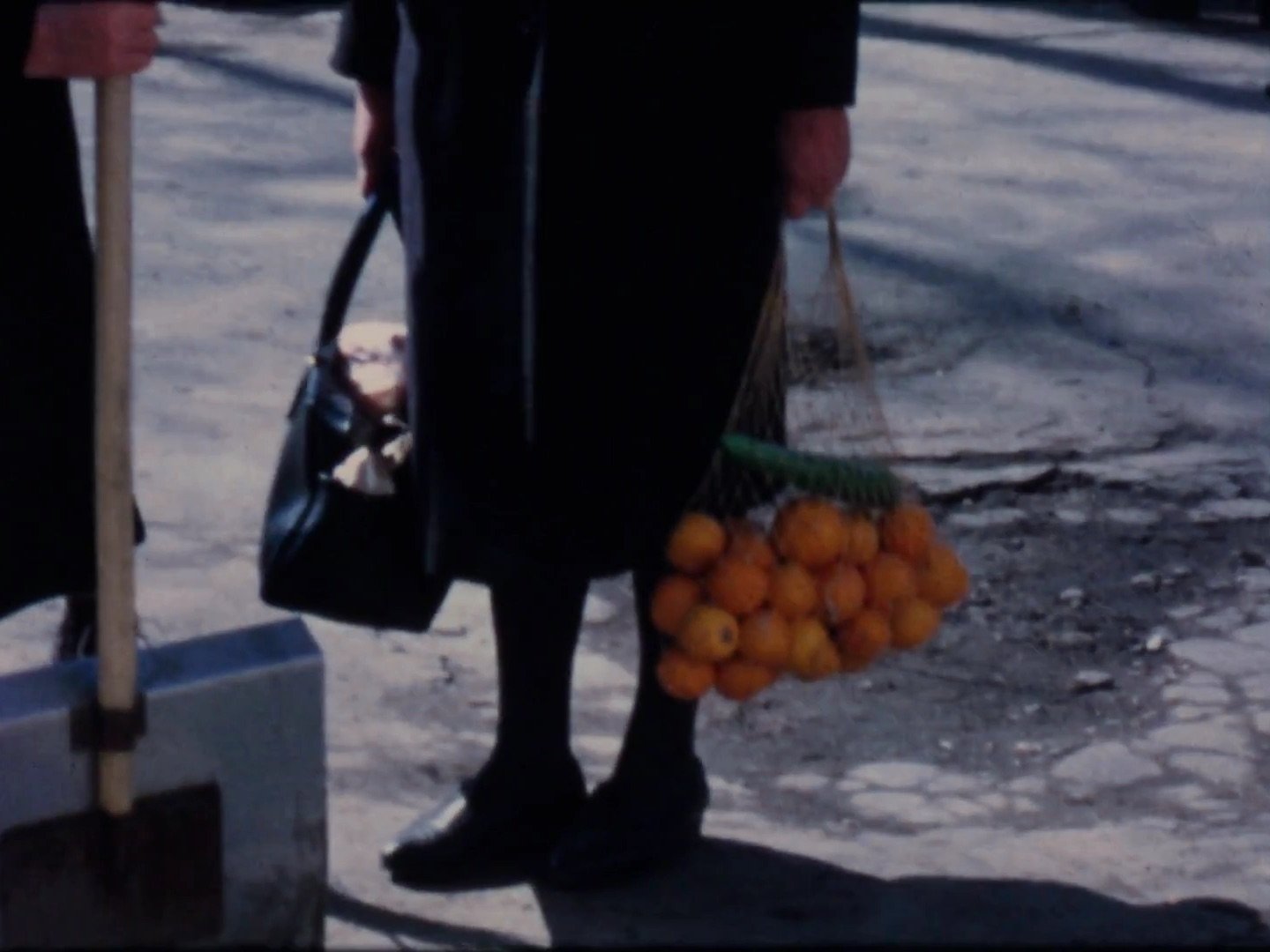October 26, 2023, 7:00 p.m.
2220 Arts + Archives, Los Angeles
Potential history of Francesc Tosquelles, Catalonia and fear (2021, 135 min.)
(Història potencial de Francesc Tosquelles, Catalunya i la por)
Mireia Sallarès
Conversation between director Mireia Sallarès, co-writer Joana Masó, Éric Fassin, and Camille Robcis followed the screening.
Co-sponsored by the USC Comparative Studies in Literature and Culture Doctoral Program, the USC Del Amo Foundation, the Francophone Resource and Research Center, Department of Comparative Literature, USC Dornsife, the French and Italian Department, USC, and with the participation of the MA Aesthetics and Politics program at the California Institute of the Arts.
PART 1 of a program in collaboration with Perwana Nazif.
Free!
Potential history of Francesc Tosquelles, Catalonia and fear appropriates a concept developed by Ariella Aïsha Azoulay to narrate the “potential history” of Francesc Tosquelles, a Catalan psychiatrist and refugee from the Spanish Civil War who ran a hospital in the middle of nowhere during the Nazi occupation of France. Revolutionary politics from the 1930s opened the way to revolutionizing therapy.
Of course, in these extraordinary circumstances, one had to make do with precarious conditions. But this was a moment of experimentation: socially, with the help of nuns and sex workers, among many other people, and culturally, with the use of cinema and the avant-garde arts. This is a film about those who believed that psychiatry should not fear the insane. Because madness is not about others. It is about us.
Mireia Sallarès (director, Barcelona, 1973) is a visual artist graduated in Fine Arts at University of Barcelona and with film studies at New School University in New York. She is guest lecturer at ISDAT Institut Supérieur des Arts de Toulouse, France. Her methodology generates trans-disciplinary artistic projects from situated feminisms concerned by nonfiction and political dimension that are formalized with films, books, installations and site-specific interventions. She has received important grants and awards as the Leonardo Grant for Researchers of BBVA Foundation or the Barcelona 2019 City Award of visual arts. Las Muertes Chiquitas, a long research project on female orgasm as a political problem carried out in Mexico, is the project with which she has obtained the greatest international recognition. Her film, Potential history of Francesc Tosquelles, Catalonia and fear, has been awarded in the Video Creation Award of the LOOP Barcelona festival.
Joana Masó (writer) is a literary critic whose work focuses on the crossover between literature, thinking, and contemporary art. She is a senior lecturer at Barcelona University, a researcher at ADHUC–Research Centre for Theory, Gender and Sexuality, and the UNESCO chair, Women, Development and Cultures. Since 2017, she has coordinated the research project “The forgotten legacy of François Tosquelles”, which has resulted in the publication of the volume Tosquelles. Curing the Institutions, recognized with the City of Barcelona Essay, Humanities and History Prize 2021. She has also co-curated the international exhibition Tosquelles. Like a Sewing Machine in a Wheat Field.
In conversation
Camille Robcis is Professor of French and History at Columbia University. She specializes in Modern European History with an emphasis on gender and sexuality, France, and intellectual, cultural, and legal history. She is the author of The Law of Kinship: Anthropology, Psychoanalysis, and the Family in France (Cornell, 2013), and Disalienation: Politics, Philosophy, and Radical Psychiatry in Postwar France (Chicago, 2021). She is currently working on a new project tentatively titled The War on Gender. She has received fellowships from the Penn Humanities Forum, LAPA (Princeton Law and Public Affairs), the National Endowment for the Humanities, the Institute for Advanced Study, and the John Simon Guggenheim Foundation.
Éric Fassin is Professor of Sociology in the Department of Gender Studies and the Department of Political Science, University Paris 8 Vincennes – Saint-Denis, Visiting Professor at the University of Geneva, and researcher at the Laboratory of Gender and Sexuality Studies (LEGS, UMR 8238: CNRS - Paris 8 – Paris Nanterre).
~
Programmed with Perwana Nazif, a writer based in Los Angeles. She is the Art Director at the Los Angeles Review of Books.
July 20, 2023, 7:30 p.m.
2220 Arts + Archives, Los Angeles
Deborah Stratman’s Framed Views: The Illinois Parables, For the Time Being (LA Premiere!) & Companion Works
Deborah Stratman in person.
Screening & Conversation
For the Time Being—LA premiere! (2021, 6:40 min, HD video)
Mono Lake, Nancy Holt, Robert Smithson (1968–2004, 19:54 min, color, sound)
Optimism (2018, 14:43 min, Super 8 to digital)
The Illinois Parables (2016, 60 min, 16mm or DCP)
Co-presented with LA Filmforum.
Deborah Stratman, For the Time Being, 2021. Courtesy the artist.
Artist and filmmaker Deborah Stratman makes work that investigates issues of power, control, and belief, exploring how places, ideas, and society are intertwined. She regards sound as the ultimate multi-tool and envisions time to be supernatural. Recent projects have addressed freedom, surveillance, public speech, sinkholes, levitation, orthoptera, raptors, comets, evolution, extinction, exodus, sisterhood, and faith. She’s exhibited internationally at venues including MoMA (NY), Centre Pompidou (Paris), Hammer Museum (LA), Witte de With (Rotterdam), PS1 (NY), Tabakalera (San Sebastian), Austrian Film Museum (Vienna), Yerba Buena Center (SF), MCA (Chicago), and in the Whitney Biennial (NY); and has done site-specific projects with venues including the Center for Land Use Interpretation, Temporary Services, Hallwalls, Mercer Union and Ballroom Marfa. Stratman’s films have been featured widely at festivals and conferences including Sundance, Viennale, Berlinale, CPH:DOX, Oberhausen, True/False, TIFF, Locarno, Rotterdam, the Flaherty and Docs Kingdom. She is the recipient of Fulbright, Guggenheim and USA Collins Fellowships, an Alpert Award and Sundance Art of Nonfiction Award; and grants from Creative Capital, Graham Foundation, Harpo Foundation and Wexner Center for the Arts. She lives in Chicago, where she teaches at the University of Illinois.
Nancy Holt & Robert Smithson, Mono Lake, 1968/2004. Courtesy EAI.
Deborah Stratman, The Illinois Parables, 2016. Courtesy the artist.
About the co-organizer
Los Angeles Filmforum is the city’s longest-running organization dedicated to weekly screenings of experimental film, documentaries, video art, and experimental animation. 2023 is their 48th year. Los Angeles Filmforum screenings are supported by the Los Angeles County Board of Supervisors through the Los Angeles County Department of Arts & Culture, the Department of Cultural Affairs, City of Los Angeles, and the Mike Kelley Foundation for the Arts. LAFF also depends on members, ticket buyers, and individual donors.
About the films
For the Time Being (2021, 6:40 min, HD video)
Los Angeles premiere!
A video letter to artist Nancy Holt, in homage to our shared interest in terminal lakes, framed views, monuments and time. Filmed on and around the Great Salt Lake, Mono Lake and Meteor Crater.
The title is taken from a piece Holt wrote for Robert Smithson in 1978, which reads in full: “For the time being, in the interim, in the course of time, from day to day, from hour to hour, until, in due time, and in the fullness of time, time endures, goes on, remains, persists, lasts, goes by, elapses, passes, flows, rolls on, flies, slips, slides, and glides by.”
Made for “The letters that weren’t and also are,” by invitation of Garbiñe Ortega and Matías Piñeiro.
Mono Lake, Nancy Holt, Robert Smithson (1968–2004, 19:54 min, color, sound)
Mono Lake is a document of a unique natural environment, a “home movie” of the artists’ 1968 road trip, and an intimate view of three seminal figures in the earth art movement as they interact with the Western landscapes that are so central to their work. (EAI)
Courtesy Electronic Arts Intermix.
Optimism (2018, 14:43 min, Super 8 to digital)
Draw down the sun. Dig up the gold. The urge to relieve a winter valley of permanent shadow and find fortune in alluvial gravel are part of a long history of desire and extraction in the far Canadian north. Cancan dancers, curlers, ore smelters, former city officials and a curious cliff-side mirrored disc congregate to form a town portrait. Shot in location in Dawson City, Yukon Territory.
The Illinois Parables (2016, 60 min, digital)
An experimental documentary comprised of regional vignettes about faith, force, technology and exodus. Eleven parables relay histories of settlement, removal, technological breakthrough, violence, messianism and resistance, all occurring somewhere in the state of Illinois. The state is a convenient structural ruse, allowing its histories to become allegories that explore how we’re shaped by conviction and ideology.
The Parables consider what might constitute a liturgical form. Not a sermon, but a form that questions what morality catalyzes, and what belief might teach us about nationhood. In our desire to explain the unknown, who or what do we end up blaming or endorsing?
World premiere: Sundance, January 2016
May 11, 2023, 8:00 p.m.
2220 Arts + Archives, Los Angeles
Launching A Rock, A River, A Street
Steffani Jemison
Reading, Screening, & Conversation
Similitude (Jemison, 2019, 35 mins., HD video)
Accompanied by
Volleyball (Foot Film), Yvonne Rainer (1967, 10 mins., silent)
Back Inside Herself, S. Pearl Sharp (1984, 4 mins.)
Conversation with the director in person & CAAMS curator Taylor Renee Aldridge followed.
Co-organized with Poetic Research Bureau and Primary Information.
In her experimental debut novella, A Rock, A River, A Street, published by Primary Information in 2022, artist Steffani Jemison moves deftly across narrative genres and styles as she interrogates the boundedness of the self, the possibilities of plurality, and the limits of performance. Titled after Maya Angelou’s poem “On the Pulse of Morning,” the book is punctuated by gestural drawings that point to questions of repetition and difference.
2220 residents Rotations and Poetic Research Bureau welcomed Jemison to Los Angeles for a launch event co-organized with Primary Information. A reading by the artist preceded the screening of Jemison’s Similitude (2019, 35 mins.), alongside S. Pearl Sharp’s short, 1984 visual poem, Back Inside Herself, and Yvonne Rainer’s silent Volleyball (Foot Film), part of the artist’s late-1960s series of alert dance works. Followed by a conversation with Jemison and California African American Museum (CAAM) visual arts curator, Taylor Renee Aldridge.
Similitude explores postcolonial mimicry, gesture and abstraction in relation to American and European mid-20th-century modernist mime. Featuring a black American actor trained in physical theater, Similitude considers spiritual dimensions of the discipline, including questions of masking and opacity, self-sufficiency and self-similarity, and the structural device of the parable or similitude.
Similitude courtesy Annet Gelink Gallery.
About the artist
Steffani Jemison was born in Berkeley, California and raised in Cincinnati, Ohio. Her work has been the subject of solo exhibitions and special projects at JOAN, Los Angeles; Contemporary Art Center, Cincinnati; Stedelijk Museum, Amsterdam; Nottingham Contemporary; Jeu de Paume, Paris; CAPC Bordeaux; Museum of Modern Art, New York; RISD Museum, Providence; and LAXART, Los Angeles, among others. Collaborative and group presentations have taken place at the Guggenheim Museum; MoMA PS1’s 2021 Greater New York; the 2019 Whitney Biennial, New York; the Museum of Contemporary Art, Chicago; the Institute of Contemporary Art, Philadelphia; the Brooklyn Museum; the Studio Museum in Harlem; the New Museum, and elsewhere. Jemison is a 2020 Guggenheim Fellow and an Associate Professor at Rutgers University – Mason Gross School of the Arts.
In conversation
Curator and writer Taylor Renee Aldridge joined the California African American Museum (CAAM) in August 2020. Her first project at CAAM was Enunciated Life, a contemporary art exhibition in which Black spiritual beliefs—as well as the movements, sounds, and other bodily expressions that have engendered communication within and beyond Black churches—operate as a point of departure for considering modes of surrender. Aldridge has organized critically acclaimed exhibitions with the Detroit Institute of Arts, Detroit Artists Market, Cranbrook Art Museum, and The Luminary (St. Louis). In 2015, along with art critic Jessica Lynne, she co-founded ARTS.BLACK, an influential journal of art criticism for Black perspectives. Her writing has appeared in Artforum, The Art Newspaper, Art21, ARTNews, Canadian Art, Contemporary And, Detroit Metro Times, Hyperallergic, and SFMOMA’s Open Space. She is the recipient of the 2016 Creative Capital | Andy Warhol Foundation Arts Writers Grant for Short Form Writing and the 2019 Rabkin Foundation Award for Art Journalism.
She holds an M.L.A. from Harvard University with a concentration in Museum Studies and a B.A. from Howard University with a concentration in Art History.
Back Inside Herself, 1984, USA, 4 mins., b&w, 16mm transferred to digital
S. Pearl Sharp
Widely known for her performance in Julie Dash’s film Daughters of the Dust (1991), Barbara-O stars here in S. Pearl Sharp’s self-described “visual poem of identity,” which presents a Black woman finding her own sense of self and rejecting hegemonic societal expectations of who she should be and how she should behave.
Back Inside Herself is a newly digitized, elemental film gathered in The Work We Share, an international public project from UK feminist-film distributor Cinenova. This group of films, most of which previously existed in precarious conditions, “intends to acknowledge our interdependency,” as the curators write. “What different strains of labour does our work rely on? How do we sustain this work mutually?” With this sustenance in mind, Back Inside Herself is the hopeful first of plenty Rotations interactions with The Work We Share and Cinenova.
Volleyball (Foot Film) 1967, 10 mins., b&w, silent, 16mm transferred to digital
Yvonne Rainer
A volleyball is rolled into the frame and comes to rest. Two legs in sneakers, seen from the knees down, enter the frame and stand beside it. Cut to new angle, same characters and actions. Camerawork by Bud Wirtschafter. Courtesy Video Data Bank.
About the co-organizers
The Poetic Research Bureau is a valise fiction and portable literary service in the public domain. It is a founding and resident member of 2220 Arts + Archives on Beverly Boulevard in Los Angeles. The Bureau office hosts an extended community of autodidacts and guessworkers caught up in language inquiry and the unguarded arts. Just as it is: an archive and study by day, and by night, a non-professional public forum for presentations, readings, screenings and sundry intellectual exchanges.
Primary Information is a non-profit organization founded in 2006 to publish artists’ books and artists’ writings. The organization’s programming advances the often-intertwined relationship between artists’ books and arts’ activism, creating a platform for historically marginalized artistic communities and practices. Primary Information facilitates intergenerational dialogue through the simultaneous publication of new and archival books, providing a new audience for out-of-print works and historical context for contemporary artists.
May 4, 2023, 8:00 p.m.
2220 Arts + Archives, Los Angeles
Human Flowers of Flesh
Germany, France | color | 2022 | English, French, Portuguese, Tamazight, Serbo, Croatian with English subtitles | l hr. 46 mins.
starring Angeliki Papoulia, Vladimir Vulevic, Ferhat Mouhali, Gustavo de Mattos Jahn, Mauro Soares, Steffen Danek, Ingo Martens, Nina Villanova and Denis Lavant
Helena Wittmann
Conversation with the director in person and filmmaker Nina Menkes followed.
Co-presented with Acropolis Cinema, with sponsorship from MUBI.
After a stirring encounter with the French Foreign Legion, Ida (Dogtooth’s Angeliki Papoulia) sets sail with her own corps of five men, none of whom speak the same language, to trace the route of this fabled troop. Their voyage will take them from Marseille to Corsica and finally to Sidi Bel Abbès, Algeria, the historical headquarters of the Legion. Along the way, boundaries blur. Life at sea produces a special kind of mutual understanding. A legionnaire of yore makes an about-face.
In her spellbinding follow-up to the critically acclaimed Drift, Helena Wittmann invites us to relinquish control and join her on a Mediterranean voyage unlike any other.
Official Selection – Locarno International Film Festival
Official Selection – New York Film Festival
With gratitude to Cinema Guild.
ABOUT THE DIRECTOR
Helena Wittmann, born 1982 in Neuss, Germany, is a filmmaker and visual artist based in Hamburg. Her films, among them her debut feature film Drift (2017), have been shown internationally at film festivals (including Venice Int. Film Festival, Toronto Int. Film Festival, Int. Film Festival New York, Int. Film Festival Rotterdam, Int. Shortfilmfestival Oberhausen, Int. Film Festival Ann Arbor, Viennale, FID Marseille, FICUNAM) as well as in exhibitions and have received several awards. From 2015–2018, she taught at Hamburg Academy of Fine Arts, and has worked as a mentor at Elias Querejeta Zine Eskola in San Sebastian, Spain. Outside her own work, she is also responsible for the cinematography for other directors and artists such as Luise Donschen, Adnan Softic, Philipp Hartmann, and others.
IN CONVERSATION
Nina Menkes has been described as a “Cinematic Sorceress of the Self” (Dennis Lim, New York Times). Her films include Brainwashed: Sex-Camera-Power (2022), Dissolution (2010), Phantom Love (2007), Massaker (2005), The Bloody Child (1996), Queen of Diamonds (1991), and Magdalena Viraga (1986), among others. Her work has screened in major international film festivals, including Sundance, Rotterdam, Locarno, Viennale, Berlinale, and Toronto, as well as at La Cinémathèque Française, the ICA in London, the Beijing Film Academy in China, The Whitney Museum of American Art, MoMA in NYC, and MOCA and LACMA in Los Angeles. Special honors include a Los Angeles Film Critics Association Award, a Guggenheim Fellowship, two Fellowships from the National Endowment for the Arts, an Annenberg Foundation Independent Media Grant, an American Film Institute Independent Filmmaker Award, three Western States Regional Media Arts Fellowships and two Fulbright Senior Scholar Awards. Menkes has had retrospectives of her work in Los Angeles, Tel Aviv, Berlin, Prague, Athens and New York City.
March 9, 2023, 7:30 p.m.
2220 Arts + Archives, Los Angeles
A Los Angeles Stop Cop City Solidarity Screening & Fundraising Event
Programmed with Stanya Kahn
In solidarity with the March 4–11 week of mobilization to Stop Cop City, Rotations presents Stanya Kahn’s feature, Stand in the Stream (2011–2017), accompanied by potent films from artist and filmmaker Kevin Jerome Everson (including a California premiere) and the legendary Alanis Obomsawin. Total running time: 99 mins.
Inspired by recent screenings in New York and elsewhere of Sierra Pettengill’s Riotsville, USA (which screened at Rotations on Sept. 22, 2022), we present this film program with an ongoing awe and appreciation for filmmaking as a site of political struggle; and a hope to raise funds with our LA film, art, and activist communities for the release and legal defense of recently incarcerated forest defenders, ever-conscious of the larger movement to fight what’s become inextricable—ecological destruction and racialized violence—in South Atlanta, Georgia, and beyond.
~
Programmed by Stanya Kahn and Rotations. With thanks to National Film Board of Canada, Madeleine Molyneaux, Video Data Bank, and Online Ceramics. The I and S of Lives & Second and Lee by Kevin Jerome Everson appear courtesy the artist; trilobite-arts DAC, and Picture Palace Pictures.
Proceeds from this screening went to the Atlanta Solidarity Fund to support bail and legal fees for the incarcerated forest defenders.
FILM PROGRAM
My Name is Kahentiiosta, 1995, 29 mins. Color, sound, digital video.
Alanis Obomsawin
This documentary short tells the story of Kahentiiosta, a young Kahnawake Mohawk woman arrested after the Oka Crisis’ 78-day armed standoff in 1990, and detained four days longer than other women. Her crime? The prosecutor representing the Quebec government did not accept her Indigenous name.
Second and Lee, 2008, 3 mins. 16mm film transferred to digital, B&W, sound.
Kevin Jerome Everson
Second and Lee is a cautionary tale about when not to run. It uses archival reportage and voiceover recollection to trace through repetitive corridors of presumption, justice and judgment. With James Williams.
The I and S of Lives, 2021, 7 mins. 16mm transferred to digital, color, sound, no dialogue. California premiere.
Kevin Jerome Everson
The “I” and “S” of “Lives” are the smoothest area of resistance. A rollerskater (Jahleel Gardner) navigates the letters on the pavement of Black Lives Matter Plaza in Washington D.C. on a summer afternoon, 2020.
World Premiere: Cinéma du réel, International Competition, March 2021.
North American Premiere: True/False (US), May 2021. Additional screenings: AFI Docs, June 2021, Vienna International Shorts June 2021; First Look (MOMI, NYC), July 2021, Melbourne Intl FF Aug. 2021, BFI/London FF Oct. 2021, Denver Intl FF, Nov. 2021
Stand in the Stream, 2011–2017, 60 mins. Color, sound, HD video.
Stanya Kahn
Stand in the Stream (2011–17) is a digital feature film that defies categorization. Both document and ambient fiction, Stand in the Stream was shot on multiple camera formats over the course of six years. The film’s vast and varied footage—filmed or screen-captured during livestreams by the artist in real time—is edited to create a visceral reflection of life, power, and uprising in late capitalism. As the film travels through cities and wilderness, domestic and public spaces, online chat-rooms and home movies, it is framed by the decline and death of the artist’s mother—a shipyard electrician and activist—with glimpses of Kahn’s own experience of motherhood and the toils of daily life. Stand in the Stream situates these intimacies within the shift of political and digital landscapes over time, revealing multiple intersections of the personal and the political. With original compositions by Stanya Kahn and Alexia Riner and others in a complex soundscore. Courtesy of the artist and Vielmetter Los Angeles. Stand in the Stream is in the collections of the Hammer Museum, Los Angeles County Museum of Art and the Walker Art Center.
ABOUT THE ARTISTS
A member of the Abenaki Nation and one of Canada’s most respected artists, performers, and activists, Alanis Obomsawin (b. 1932) is an activist filmmaker and producer at the National Film Board of Canada, where she has worked since 1967, having begun her career as a songwriter and storyteller. Obomsawin’s films address the struggles of Indigenous peoples in Canada from their perspective, giving prominence to voices that have long been ignored or dismissed; and her filmmaking is rooted in a desire to facilitate healing through cross-cultural and intergenerational communication. Among her well-known films is Kanehsatake: 270 Years of Resistance (1993), one of four—including My Name is Kahentiiosta—made about the armed standoff between the Mohawk nation, whose protests of the development of a golf course on a sacred area of their territory met in a standoff with Quebec police and the Canadian army in July 1990. Despite being abandoned by all other film crews from major news outlets, Obomsawin remained behind barricades to stand in solidarity with the Mohawk community near Oka. Obomsawin makes films to educate Native and non-Native people about the ongoing reality of Indigenous struggles.
She holds an Honorary Doctor of Law, Concordia University (1993); an Honorary Doctor of Letters, York University (1994); an Honorary Doctor of Literature, Carleton University (1994); an Honorary Doctor of Law, University of Western Ontario (2007); an Honorary Doctor of Letters, University of British Columbia (2010), among more than 20 honorary degrees, and many other academic and educational accomplishments. Her 50+ films have been exhibited widely at festivals, museums and galleries internationally, including the Museum of Modern Art, imagineNative Film and Media Arts Festival, and Toronto International Film Festival. She is the recipient of numerous awards, fellowships, and prizes, including Officer and Companion of the Order of Canada; the Glenn Gould Prize; Prix Albert-Tessier; Canadian Screen Awards’ Humanitarian Prize, as well as multiple lifetime achievement and Governor General’s Awards. She was named an Honorary Fellow of the Royal Society of Canada (2013), and a Grand Officer of the National Order of Quebec (2016). She lives and works in Montreal, Quebec.
Kevin Jerome Everson (b.1965, Mansfield, Ohio). Professor of Art, University of Virginia, Charlottesville. Everson’s art practice encompasses printmaking, sculpture, photography and film, including 12 features and more than 200 shorts. Recipient of the Guggenheim; Berlin Prize; Heinz Award in Art and Humanities; Alpert Award for Film/Video & Rome Prize, Everson's work has been featured in mid-career retrospectives at Tate Modern/Film; Halle fur Kunst Steiermark, Graz; Harvard Film Archive; Whitney Museum of American Art; Centre Pompidou; Modern and Contemporary Art Museum, Seoul; Cinematek Brussels and featured at the Whitney Biennial (2008, 2012, 2017), the Sharjah Biennial and the 2018 Carnegie International.
Stanya Kahn is an interdisciplinary artist working primarily in film/video with a practice that includes drawing, painting, sculpture/installation, sound and writing. Humor, pathos and the uncanny are central to a hybrid media practice that seeks to re-work relationships between fiction and document, the real and the hyper-real, narrative time and the synchronic time of impulse. In a long-term investigation of how rhetoric gains and loses power, Kahn’s projects often situate language in the foreground of works that are dialectically driven by the demands and of the body. Sometimes language falls away altogether. Recent solo exhibitions include shows at Institute for Contemporary Art/Los Angeles, The Wexner Center for the Arts, MoMA/PS1, New Museum/NY, British Film Institute/London Film Festival, Rotterdam International Film Festival, Susanne Vielmetter Los Angeles Projects, Marlborough Chelsea/NY, Weiss Berlin, The Pit/LA, Cornerhouse/Manchester, UK. Select group exhibitions include Weslyan Art Gallery, the Walker Art Center, CAM/St. Louis, the Gwanju Biennial (’18), Hammer Museum, New Museum, MOCA/SD, Fernley Astrup/Norway, Transmediale, The California Biennial (’10). Her collaborative work with Harry Dodge has shown at Elizabeth Dee Gallery/NY, the Whitney Biennial (08), Sundance Film Festival, MOCA/LA, MoMA/NY, ZKM/Karlsrüh, among others. Kahn was a 2012 Guggenheim Fellow in Film/Video. She was a contributing writer and actor in feature film By Hook or By Crook. Her writings and drawings appear in multiple publications including Die Laughing (2nd Cannons), Moving Image (MIT Press), It's Cool, I'm Good (Cornerhouse), and Abstract Video (UC Press). Her work is in the collections of the Hammer Museum, MoMA/NY, LACMA, the Walker Art Museum and among others.
A NOTE ABOUT STOP COP CITY
In late 2021, forest defenders in Atlanta’s 300-acre Weelaunee Forest—supported by a coalition of environmental groups, neighborhood associations, and racial justice groups—began peacefully tree-sitting and blocking construction for a proposed police-training center known as “Cop City.” Slated to be twice the size of already oversized police-training facilities in New York and Los Angeles, Cop City, if completed, will serve as a national model of police militarization (and budgetary bloat) aimed directly at Black and working-class communities. The land slated for development into Cop City has long been the site of racialized violence.
On January 18, 2023, multiple policing agencies invaded an activist treehouse encampment and killed forest defender Manuel Esteban Paez Terán, also known as Tortuguita. Initially claiming self-defense, the police agencies’ body-camera footage shows a wounded officer, shot by another officer, with Tortuguita unarmed. Under the same pretenses, police then rounded up and arrested other activists, charging them with the ill-fated “domestic terrorism.” As of this week, these “forest defenders” may be facing RICO charges in an extraordinary bending of the law by the state against citizens’ rights to protest and to protect the primary green space in their community.
What is Cop City? Resources
Cop City is a proposed $90-million+ police-training compound backed by the Atlanta Police Foundation in agreement with the Atlanta City Council, and corporate patrons like Cox, Delta, the Koch brothers, and Home Depot, to name a few. With a plan to raze 85 acres of the surrounding Weelaunee Forest, the site will be home to the largest police-training facility in the United States, also slated to include a “mock city,” where police will train for what they’ve long seen as necessary urban warfare, using firearms, tear gas, helicopters, and explosive devices much as they did during the 2020 George Floyd uprisings.
A movement has sprung to fight back these plans, and for reasons that are multiple and historically significant: the forest is also the former home of the Muscogee Creek people, forcibly removed by white settlers in the late-19th century; the site of a famous Civil War battle and plantation, and, later, a labor camp; while Atlanta’s tree canopy here is one of the city’s main sources of resiliency in the face of climate change. The threatened forest is home to wetlands that filter rainwater and prevent flooding, a growing issue in the city. It is also one of the last breeding grounds for many amphibians in the region and an important migration site for wading birds. Confrontations between police and activists both in the forest and the city are ongoing.
Updates, information, and ways to donate are available here: https://atlsolidarity.org/
Defend the Atlanta Forest: https://defendtheatlantaforest.org/
February 11, 2023, 1:00 p.m.
2220 Arts + Archives, Los Angeles
Calamity Jane & Delphine Seyrig: A Story
Babette Mangolte
France, USA | 2020 | French, English. 87 minutes.
United States premiere
Q+A followed with Babette Mangolte & Corina Copp
In 1983, cinematographer, artist, and filmmaker Babette Mangolte said yes to an invitation: she would shoot, in Montana, a dream project for director, actor, and feminist activist Delphine Seyrig—seven years after their work together on the set of Chantal Akerman’s Jeanne Dielman, 23 quai du Commerce, 1080 Bruxelles—sprung by another late-1970s feminist urtext, Calamity Jane’s Letters to her Daughter, a publication which fascinated Seyrig on multiple levels, but particularly for its emphasis on epistolary absence (letters not sent are not received).
After making a working print from the processed 16mm footage, Mangolte moved on to other projects, finding out decades later that Seyrig had been writing the script for this unfinished film about the famous “frontierswoman” Calamity Jane with Lebanese-American artist and poet Etel Adnan (by the early 1980s, no stranger to filmic collaboration). After encouragement from Seyrig’s son, Duncan Youngerman; Nicole Fernández Ferrer, director of Centre Audiovisuel Simone de Beauvoir (co-founded by Seyrig, Carole Roussopoulos, and Ioana Weider in 1982); and Adnan herself, Mangolte turned to the archive containing Delphine Seyrig’s private papers, and to her own original analog footage, to make a new edit, a new film, that would incorporate both. Calamity Jane & Delphine Seyrig: A Story is a cinematic reflection on mothering and feminist practice that grants Seyrig her deserved brilliance while expanding—spatiotemporally, lovingly—the autonomous space women have long carved between text, artist, influence, subject, and collaborator.
With gratitude to Babette Mangolte.
Director Babette Mangolte is a French-born, US-based experimental filmmaker and photographer who also teaches in the UCSD visual arts department. Her writing on filmmaking practices and the impact of digital tools on filmmaking were published in a book edited by Luca lo Pinto and published by Sternberg Press in 2018. In 2019, she had a retrospective of her works in film, photography, and installations at the Rochechouart Castle Museum, and finished the feature Calamity Jane & Delphine Seyrig: A Story. In 2022, she had a major exposition of her historical photographs in Arles Rencontre de la Photographie.
January 26, 2023, 7:30 p.m.
2220 Arts + Archives, Los Angeles
Bunker (2021)
Jenny Perlin
USA. Color, sound, 92 minutes.
Introduced virtually by Jenny Perlin and preceded by
Swamp (1971)
Nancy Holt & Robert Smithson
USA. Color, sound, 16mm film on video, 6 minutes.
In Bunker, artist and director Jenny Perlin road-trips across the U.S. to meet the survivalists: American men who have removed themselves from society in preparation for its ultimate breakdown. An investigation of masculinity, whiteness, security, serenity, and structure in our time of manifold crisis, Bunker eyes both wealthy developers with visions for luxury compounds, and the underground salesmen who keep up the toxic myth-making. Ever-watchful but also in real conversation, Perlin’s visits to these decommissioned nuclear missile silos, bunker colonies, and isolated retreats give form to the pathologies of “rugged individualism” that maintain with steel-grip their narrative and actual power in this country.
“Perlin taps into both the loneliness of these men (almost all of them mention relationships, including marriages, that have dissolved as a result of commitment to the survivalist lifestyle), as well as the unnameable power of seduction that solitude holds over them…” —Stephanie Monohan, Screen Slate
Produced by A. S. Hamrah. Los Angeles Premiere.
Director Jenny Perlin makes 16mm films, videos, and animations. Her films work with and against the documentary tradition, incorporating innovative stylistic techniques to emphasize issues of truth, misunderstanding, and personal history. Her projects look closely at ways in which social machinations are reflected in the fragments of daily life. Perlin’s work has been shown in numerous exhibitions and film festivals, including at the Whitney Museum of American Art, the Guggenheim Museum, the Museum of Modern Art, the New York Film Festival, the Berlin Film Festival, the Rotterdam Film Festival, and others.
Preceded by
Swamp (1971)
Nancy Holt & Robert Smithson
Nancy Holt and Robert Smithson collaborated on this [beloved] film, which viscerally confronts issues of perception and process. The action of the film is direct: Holt walks through the tall grasses of a swamp while filming with her Bolex camera, guided only by what she can see through the camera lens and by Smithson's verbal instructions. The viewer experiences the walk from Holt's point of view, seeing through her camera lens and hearing Smithson's spoken directions. Vision is obstructed and perception distorted as they stumble through the swamp grasses. Holt has stated that Swamp “...deals with limitations of perception through the camera eye as Bob and I struggled through a muddy New Jersey swamp. Verbal direction cannot easily be followed. As the reeds crash against the camera lens blocking vision and forming continuously shifting patterns, confusion ensues.” (EAI)
Courtesy of the Holt/Smithson Foundation and Electronic Arts Intermix (EAI), New York.
November 17, 2022, 7:30 p.m.
2220 Arts + Archives, Los Angeles
Under the Skin, a Fruit: Short Film + Reading Program for The Book of Na
Na Mira + Elena Gomez
accompanied by
Nguyễn Trinh Thi, Theresa Hak Kyung Cha, Tracey Moffatt, & Marie Menken
In a conjunct effort to celebrate The Book of Na, a 240-page publication by LA-based artist Na Mira that engages border, obliteration, and dream, Rotations, Wendy’s Subway (Brooklyn), and Poetic Research Bureau co-presented a program of short films—selected together with Mira and visiting Melbourne poet Elena Gomez—by film artists whose work is informed by translation and dislocation, both materially and in real time. “Under the Skin, a Fruit” takes a line from Mira’s book to convey the shared dual-textures and ineffable doubles, stone fruits, in otherwise diverging lines of straining “plot”: Aboriginal histories take place in theatrical reencounter, Clarice Lispector’s Água Viva is read aloud and fragmented, Theresa Hak Kyung Cha’s earthwork shifts its container. Shorts screened in two parts, accompanying readings from Mira and Gomez of their own work.
SHORT FILM PROGRAM
Nguyễn Trinh Thi, Landscape Series #1 (2013, 5 mins)
This short film by Hanoi-based video artist, documentary filmmaker, and founder of Hanoi DocLab, Nguyễn Trinh Thi, presents a selection (from hundreds) of Vietnamese press landscape photographs. Eerily retrospective in their vacation-photo slideshow-format, and featuring many unnamed persons pointing “something” out, these augmented landscapes “indicate a direction, a way forward out of the past, a fictional journey,” as the artist has written.
Na Mira, Untitled (Água Viva) (2013, 12 mins)
In Untitled (Água Viva), 2013, Clarice Lispector’s novel is read aloud by a father. A mother debates the meaning. Between sound and vision language is bodied, breaking out. “Could I manage to surrender to the expectant silence of a question with no answer?” From off-screen her words transcribed, doubled: “Yeah!” / "Yeah!” (Mira)
Theresa Hak Kyung Cha, Re Dis Appearing (1977, 2.5 mins)
The artist speaks a word, which is quickly echoed in French, so that the words are only barely comprehended. Simple images—a bowl, a photograph of the ocean—appear and disappear. (EAI)
Tracey Moffatt, Night Cries: A Rural Tragedy (1990, 17 mins)
A pair of frail, gnarled feet. The Aboriginal daughter on her hands and knees, gently washes her white mother’s arthritic feet. The Aboriginal woman begins to remember another time, when as a family they would visit the beach. “A dazzling grand opera of silence and maternity, as opulent as Robert Wilson, as soulfully anguished as Fassbinder” —Manohla Dargis, Best of 1990, Village Voice
Na Mira, Tesseract (test) (2020, 6 mins)
“[FLASHING LIGHT]
19. On the screen is projected same shot of railroad tracks
20. The woman enters live from screen left
21. She walks into the image slowly”
—Theresa Hak Kyung Cha describing the end of her unfinished film, White Dust From Mongolia, 1980.
Mira performed this scene recording with the broken infrared night camera that has been producing a glitch across her projects for years, repeating the past in the present. During the performance, sounds began hissing from a microphone Mira made with a latex tube soaked in Mugwort. This reverse transmission, later audible as 1540 AM Radio Korea, has been playing ever since. (Mira)
Theresa Hak Kyung Cha, Secret Spill (1974, 27 mins)
Cha’s first video-work is a documented durational performance and earthwork installation that fuses elements of the natural world to make cyclical and unceasing what is traditionally distinct: inside and outside, emptiness and fullness. “Total duration without need for verification of time” —Dictee.
Marie Menken, Eye Music in Red Major (1961, 5.5 mins)
“A study in light based on persistence of vision and enhancement from eye fatigue.” (Menken, Film-Maker’s Coop)
With gratitude to Nguyễn Trinh Thi, Electronic Arts Intermix, The Film-maker’s Cooperative, and Women Make Movies. Theresa Hak Kyung Cha: courtesy Collection of the University of California, Berkeley Art Museum and Pacific Film Archive, Gift of the Theresa Hak Kyung Cha Memorial Foundation. Copyright: Regents of the University of California. Courtesy Electronic Arts Intermix (EAI), New York.
READINGS
Elena Gomez lives in Melbourne. She is the author of Admit the Joyous Passion of Revolt (Puncher & Wattmann, 2020), Body of Work (Cordite Books, 2018), and several pamphlets and chapbooks.
Na Mira’s autobody rites have been presented at sites including Seoul Museum of Art; Museum of Contemporary Art, Los Angeles; Portland Institute of Contemporary Art; Participant Inc., New York; and Whitney Museum of American Art, New York. Mira earned an MFA from the University of California, Los Angeles. She grew up between the US and East Asia and teaches outside.
About the book
In The Book of Na, translation acts at the edge of perception. Tracing across projects in film, video, and performance, Na Mira reflects on the violent fragmentation of bodies while refusing the containment of geographic and corporeal borders. In 1977, a name is cut at an immigration office. This gap turns into an intergenerational score for becoming heat, hexagram, hologram. Using oracular and glitching technologies, Mira witnesses what escapes data: doppelgängers, dreams, endangered tigers, tesseracts, A. Turiyasangitananda Coltrane's stairs, Theresa Hak Kyung Cha in a theater, Korean shamanism, frozen ligaments, wildfires, borderlands, subatomic particles, and pink. Syncing to a clock with neither face nor hands, Mira’s hauntological permutations in time, death, and relation travel outside the symbolic order and draw energy from the void.
About the co-organizers
The Poetic Research Bureau is a valise fiction and portable literary service in the public domain. It is a founding and resident member of 2220 Arts + Archives on Beverly Boulevard in Los Angeles. The Bureau office hosts an extended community of autodidacts and guessworkers caught up in language inquiry and the unguarded arts. Just as it is: an archive and study by day, and by night, a non-professional public forum for presentations, readings, screenings and sundry intellectual exchanges.
Wendy’s Subway is a reading room, writing space, and independent publisher in Bushwick, Brooklyn, dedicated to supporting emerging artists and writers in making experimental, urgent work, and creating alternative modes for learning and thinking in community. More at wendyssubway.com.
“Under the Skin, a Fruit” is co-presented by Rotations, Poetic Research Bureau, and Wendy’s Subway.
October 28, 2022, 7:00 p.m.
LIGHT, BLAZE, FULGOR — Auguries for a Non-Hierarchical Framing and Flourishing (2018–ongoing)
Sílvia das Fadas
(LUZ, CLARÃO, FULGOR — Augúrios para um Enquadramento Não Hierárquico e Venturoso)
Experimental documentary, 16mm, 85 min. Sound / Color, B&W. Portugal, Germany, Austria.
Sílvia das Fadas and collaborator Robert Blatt were present in LA to accompany this screening with a live reading and performed sound-score that utilized three 16mm projectors.
Copies of a commissioned booklet featuring an essay written by das Fadas for the film, alongside the score for Light, Blaze, Fulgor, were available for free to audiences at this screening. Published by The Poetic Research Bureau. A few copies may still be available, please be in touch if interested.
Light, Blaze, Fulgor — Auguries for a Non-Hierarchical Framing and Flourishing was sparked by a consideration of the anarchist António Gonçalves Correia and his communal experiments—first, at Comuna da Luz (The Commune of Light), in Vale de Santiago/Odemira, Portugal (1917–18), followed by Comuna Clarão (The Blaze Commune), in Albarraque/Sintra (1926). As this film itself has moved through different iterations, it anticipates a fulgurous de-hierarchization of the act of seeing, while attempting to offer a pedagogy of land and conviviality in Portugal’s bio-region of Alentejo.
“Stubbornly looking at the ruins of a commune we search for auguries. For instance: ‘Fair weather for drifters.’ We wander by foot across times, erratically shooting images and recording sounds through the kaleidoscopic spatiality of Alentejo, a Portuguese region named after a river, beyond a river. As walking offers unexpected encounters and co-presences, missives are sent to and from the margins. For instance: ‘growing organs for the alternative.’ Our senses are partial, precarious and fragmentary, but not our orientation: There is an everyday struggle for the fulgor being fought and we want to be in it. Against a firmament of dispossession of land, bodies and social bonds, we are getting ready. For instance: ‘On the level!’ The fulgor is mobile, the prefigured community dispersed and diverse. Through dissent and associations of affinity, autonomy and re-enchantment, the offer of cinema could be to let us flourish in non-hierarchical frames.” —Sílvia das Fadas
About the film’s making
16mm film and text by Sílvia das Fadas.
Sound and score by Robert Blatt, based on recordings by Blatt, Sílvia das Fadas, and Nora Sweeney.
About the filmmaker
Sílvia das Fadas is an artist-filmmaker, convivial researcher, and educator based in southern Portugal. She holds an MFA in Film and Video from CalArts (USA), was a cooperation fellow at the Akademie Schloss Solitude (Germany, 2019), and a visiting fellow at the Center for Place, Culture and Politics – The Graduate Center, CUNY (2020). She is currently a PhD-in-Practice candidate at the Academy of Fine Arts Vienna, supported by a FCT scholarship; and the curator of CINEMA FULGOR, a cinema with mobile roots that participates in the construction of a living and autonomous rurality. Her filmography refuses the digitalization of the world and includes Light, Blaze, Fulgor — Auguries for a Non-Hierarchical Framing and Flourishing (2018–ongoing), The House Is Yet to Be Built (2015–2018), Square Dance, Los Angeles County, California (2013), and Apanhar Laranjas/Picking Oranges (2012). She is interested in the politics intrinsic to cinematic practices and in cinema as a way of being together in restlessness and brokenness.
About the composer
Robert Blatt is a composer, artist, performer, and writer. His practice is rooted in explorations of expanded sonic situations that seek to reevaluate the paradigmatic and contextual components of sound and listening through environment, community, and language. This has resulted in a body of work ranging from experimental music to installation, print and bookmaking, photography, video, and new media, alongside simply hard-to-pin-down occurrences in the everyday. His work has been presented internationally at festivals, exhibitions, and concerts, such as Art in Odd Places (NY), Co-Incidence Festival (MA), Darmstädter Ferienkurse (DE), Ideas of Noise Festival (UK), Kunstraum Walcheturm (CH), Subtropics (FL) and Villa Merkel (DE). He has been supported with fellowships and residences from Akademie Schloss Solitude (DE), Initiative for Digital Exploration of Arts and Sciences (CA), and Jack Straw New Media Gallery (WA); and his work is held in public and private collections, such as San Francisco Museum of Modern Art (CA), Letterform Archive (CA), and Colorado College (CO). He holds degrees from the Royal Conservatoire, The Hague, and the University of Washington, Seattle. He currently lives in Portland, Oregon.
September 22, 2022, 7:00 p.m.
Riotsville, USA (2022)
Sierra Pettengill
91 min. USA. In conversation: Sierra Pettengill + Jackie Wang
Co-presented with Magnolia Pictures.
Documentary filmmaker Sierra Pettengill’s Riotsville, USA (2022) screened exclusively with Rotations at 2220 Arts + Archives before its LA theatrical release.
An exacting film that propels newly discovered, late-1960s archival footage toward a necessary examination of the racist reactionary apparatus. Centered on wholly constructed, theatrical “riots”—populated by actors on sets in fake U.S. towns built for military training—Pettengill’s collaboration with writer Tobi Haslett, editor Nels Bangerter, and composer Jayce Clayton writes into state-sanctioned history to better craft a political consciousness for the present.
Official Selection
2022 Sundance Film Festival – World Premiere
2022 DOC10
2022 New Directors/New Films
2022 SFFILM Festival
2022 DCDOX
2022 Traverse City Film Festival
“What are we looking at?”
“How do you situate Riotsville within the legacy of 1968, reconciling living memory and mythology? How do you situate it within the life of the communities most affected by the state violence the performances at Riotsville are illustrating, and within the activism organizing to oppose it? And crucially, how do you situate it within a nation founded on white supremacism, determined to launch a war against its Black citizens, on a loop for hundreds of years?
These questions informed the form and shape of the film; a mapping of structural forces that could not seem more urgent in 2022 …” —Sierra Pettengill
About the filmmakers
Sierra Pettengill, Director
Sierra Pettengill’s work focuses on the warped narratives of the American past. Most recently, she directed the archival short The Rifleman, which premiered at the 2021 Sundance Film Festival. Her 2017 feature-length film, the all-archival documentary The Reagan Show, premiered at the Locarno Film Festival before airing on CNN. She directed the ‘Big Dan’s Tavern’ episode of the Netflix series Trial By Media about the first televised rape trial in the U.S. Her 2018 all-archival short film, Graven Image, aired on POV and is held at the Legacy Museum in Montgomery, Alabama. In 2013, she produced the Academy Award-nominated film Cutie & the Boxer, which also won an Emmy Award for Best Documentary, and co-directed (with Jamila Wignot) Town Hall, about the emergent Tea Party movement, for PBS. She has also worked as an archival researcher for many artists, including Jim Jarmusch and Adam Pendleton.
Tobi Haslett, Writer
Tobi Haslett is a writer who has written about art, film, literature and politics for the New Yorker, Artforum, Harper's, and elsewhere. He penned the introduction to Horse Crazy (1989), a novel by Gary Indiana reissued in 2018, and Nothing But the Music, a collection of poems by Thulani Davis (Blank Forms, 2020). Tobi’s essays have appeared in the exhibition catalogues for Radical Visions: Reza Abdoh (MoMA PS1, 2018) and Martin Puryear's U.S. Pavilion exhibition at the 59th Venice Biennale.
Nels Bangerter, Editor
Nels Bangerter is an Emmy-nominated documentary film editor and two-time winner of both the International Documentary Association and Cinema Eye Honors Best Editing awards. His work includes Cameraperson, which premiered at Sundance and won the Freedom of Expression award from the National Board of Review, Dick Johnson is Dead, The Hottest August, the Academy Award-nominated short film Buzkashi Boys, and Let the Fire Burn. Nels has contributed as a consultant to numerous award-winning projects, and has been an advisor for several incubators including the Sundance Institute Lab Program. Before becoming an editor, he worked in a gold mine, lived in a redwood tree, and earned an MFA in film production from USC.
Jace Clayton, Composer
Jace Clayton is an artist and writer based in New York, also known for his work as DJ /rupture. He is the author of Uproot: Travels in 21st Century Music and Digital Culture (Farrar, Straus and Giroux) and was awarded a 2020 Andy Warhol Foundation Art Writers Grant to support Behold the Monkey, his upcoming book on contemporary art, faith, and social media. Jace is currently Assistant Professor of Visual Arts at Columbia University and Interim Director of the Sound Arts Program.
Further information about the production team is here.
About the moderator
Jackie Wang is the author of the poetry collection The Sunflower Cast a Spell to Save Us from the Void (Nightboat, 2021), which was longlisted for the National Book Award; the critical essay collection Carceral Capitalism (Semiotext(e), 2018); and the chapbooks The Twitter Hive Mind Is Dreaming (Robocup Press, 2018) and Tiny Spelunker of the Oneiro-Womb (Capricious, 2016). A researcher on race, surveillance technology, and the political economy of prisons and police, Wang is an Assistant Professor of American Studies and Ethnicity at University of Southern California. Her forthcoming book manuscript, tentatively titled Vectors of Control, examines how, during the postwar period, calls to reform the U.S. criminal legal system catalyzed experimentation in the realm of criminal procedure and led to the development of new technologies of control. Rather than focusing exclusively on the role of the state in pursuing the policy path now known as ‘mass incarceration,’ her recent research looks at the role of reformers, nonprofits, the Cold War university, and financiers in shaping the development of the carceral state.
April 20, 2022, 7:00 p.m.
The Tramp’s New World (2021)
Zoe Beloff
62 min, English. Screening with In the Street (1948, Helen Levitt and James Agee, 16 min).
In conversation: Zoe Beloff + Alexander Stewart
Originally scheduled for January, The Tramp’s New World played 2220 Arts + Archives on April 20, accompanied by Helen Levitt and James Agee’s 16-minute In the Street (1948) and an in-person conversation with filmmaker Zoe Beloff and Alexander Stewart, educator, filmmaker, and co-founder of the Eyeworks Festival of Experimental Animation.
In an unrealized scenario written for his hero Charlie Chaplin in 1948, film critic, journalist, novelist, and screenwriter (Night of the Hunter!) James Agee imagined New York City destroyed by a nuclear bomb. At first there appears only one survivor, the Little Tramp himself. Though his community is destroyed, his spirit remains unbowed. As the Little Tramp sets off across the ruins of our country, he remains as ever mischievous, anarchic, eternally optimistic. Beloff’s formal exercise, based on Agee’s original notes for the project, involves spirited animation, projection, rare archival footage, and theatrical enactment—moving Agee’s devotion to Chaplin, and to a very contemporary radical collectivity, far beyond the formal.
“Even when he modified and showboated … Agee’s style was exciting in its pea-soup density,” wrote friend and fellow film critic Manny Farber. As the dispossessed settle around Beloff’s cinematic phantom(s) and their Central Park shack, her rendering of Agee’s pea-soup style grows frenzied and colorful, all-too current, then back to black-and-white melodrama, swerving as the best artifice can. The seasons are changing.
About the filmmaker
Zoe Beloff is an artist and filmmaker. Her projects often involve a range of media including films, drawings and archival documents. They include proposals for new forms of community, such as “The Coney Island Amateur Psychoanalytic Society and its Circle 1926–1972,” and “The Days of the Commune”; projects that explore relationships between labor, technology and mental states, as in “The Infernal Dream of Mutt and Jeff” and “Emotions go to Work”; as well as the exploration of the origins of cinema from a feminist perspective. Beloff aims to make radical art that educates, entertains, and provokes discussion. Most importantly, as her work attests, she believes protest should be vibrant, humorous and colorful, a carnival of resistance to light the way in dark times.
Beloff has been awarded fellowships from the Foundation for Contemporary Arts, the John Simon Guggenheim Memorial Foundation, The Radcliffe Institute at Harvard, and the New York Foundation for the Arts. She is a Professor in the Departments of Media Studies and Art at Queens College, CUNY.
Beloff’s most recent visit to Los Angeles was in 2018, thanks to the Velaslavasay Panorama, where she screened three films in the program, A World Redrawn: Eisenstein and Brecht in Hollywood.
Cast
Barrett Martin, Diana DeLaCruz
Cinematographer
Eric Muzzy
Q+A moderated by
Alexander Stewart received his MFA from the School of the Art Institute of Chicago. His short films have screened internationally, including at the International Film Festival Rotterdam, the Ottawa International Animation Festival, the Ann Arbor Film Festival, and Image Forum in Japan. He co-curated the Flaherty NYC’s 2019 series “Puzzling”, and in 2010 co-founded the annual Eyeworks Festival of Experimental Animation. He lives in Los Angeles and teaches in the Experimental Animation program at CalArts.
Co-presented with LA Filmforum.
April 10, 2022, 1:00 p.m.
El Lado Quieto (2020)
Carolina Fusilier and Miko Revereza
70 min., 2020. Produced and distributed by Arquitectura Parlante. Followed by a live Q&A with both directors and Patricia Ciccone.
A new film from Miko Revereza (No Data Plan) and artist Carolina Fusilier, El Lado Quieto/The Still Side combines speculative fiction, folklore, and documentary to invite spectators to engage all senses. A sea-creature camera-eye has swum currents from the Philippines to rove an abandoned theme park in Capaluco, an island off the coast of Mexico. Spectral voices accompany its watery trespass to offer concern and prediction for inhabitants of touristed architecture past and future—sweeping monument, artifice, science-fiction, and fact—in search of a condition for listening.
Los Angeles premiere. This screening will be followed by a virtual conversation with Fusilier and Revereza, moderated by scholar Patricia Ciccone.
Carolina Fusilier (1985, Buenos Aires, Argentina) works across different media, including video, painting, sound compositions, and installations. She has a degree in Animated Film (Universidad del Cine, Buenos Aires, 2006-2009) and has completed further studies in visual arts and music: Düsseldorf Academy, guest student, Rita McBride class 2019- 2018; Soma Mexico 2016-2017; Programa de artistas, Universidad Torcuato Di Tella, Buenos Aires, 2011; Conservatorio de Musica Manuela de Falla, 2003- 2004, Buenos Aires, Argentina.
Carolina has recently received The Pollock- Krasner Foundation Grant (2019-2020) and the Jumex Foundation Grant for the production of her work Kitchen with a view(2019). In 2015 she received the Raul Urtasun-Frances Harley Scholarship for emerging artists in Argentina (The Banff Center – 2015). She was part of Open Sessions 2018-2019 a two year program in The Drawing Center, New York.
Miko Revereza (b. 1988. Manila, Philippines) is a stateless filmmaker raised in California and currently residing between the Philippines and Mexico City. His upbringing as an undocumented immigrant and current exile from the US informs his relationship with moving images. DROGA! (2014), DISINTEGRATION 93-96 (2017), No Data Plan (2018), and Distancing (2019) have screened at festivals such as Locarno Film Festival, International Film Festival Rotterdam, NYFF Projections, Film Society of Lincoln Center's Art of the Real and at institutions such as National Gallery of Art in Washington D.C., and Whitechapel Gallery. No Data Plan was recognized with the Sheffield Doc Fest Art Award and listed in BFI Sight & Sound Magazine’s 50 Best Films of 2019, Hyperallergic’s Top 12 Documentary and Experimental Films of 2019, and CNN Philippines Best Filipino Films of 2019. Revereza is a 2019 Flaherty Seminar featured filmmaker and MFA graduate of Bard College.
Patricia Ciccone is a PhD candidate in Cinema and Media Studies at the University of Southern California. Her dissertation research draws on infrastructure studies and nonfiction media to investigate the rhetorics of repair in the context of neoliberalism. She often performs with the Montréal-based pop collective Donzelle and is currently working on an experimental documentary about wind farms.
U.S. premiere, MoMA Doc Fortnight, February 2022
Festival Documental Open City 2021, London
Yamagata International Documentary Film Festival (YIDFF) 2021, Japan
DMZ International Documentary Film Festival 2021, Korea
February 26, 2022, 1:00 p.m.
Aleph (2021)
Iva Radivojević
Q+A with the director and Eszter Zimanyi
US/Croatia/Qatar, 2021, HD, 91 minutes. In Arabic, English, Greek, Nepalese, Serbo-Croatian, Spanish, Thai, and Zulu, with English-language subtitles.
A New Directors/New Films 2021 official selection, Aleph is blue-ribbon hybrid storytelling—researched documentary with newfound protagonists as co-conspirators, travelogue across ten different countries, and fictive, stylized quest—loosely inspired by a short story of the same name by Argentinian writer Jorge Luis Borges, and narrated by poet Anne Waldman.
A rare chance to enter a portal that Aleph’s director, the unpredictable Iva Radivojević, has described as “information given … of a deep, rich, life-vivifying sort. We tell these stories to come to terms with the world, to harmonize our lives with a reality.”
This screening will be followed by an in-person conversation with Radivojević and media scholar Eszter Zimanyi.
~
Aleph writer/editor/director
Iva Radivojević was born in Belgrade and spent her early years in Yugoslavia and Cyprus. She is an artist and filmmaker who currently divides her time between subarctic Alaska, Brooklyn, and Lesbos. Her work presents itself as a collection of fragments {observations, poetry, images, sounds, melodies, languages} which collage together to connect into a ruminating whole. The work circles around displacement and belonging, seeking to connect to the metaphysical or the magical.
Iva’s films have screened at NYFF, Rotterdam IFF, CPH:DOX, SXSW, DocLisboa, Museum of Modern Art (NYC), PBS and New York Times Op-Docs. She is the recipient of the Sundance Art of Non-Fiction Fellowship, Guggenheim Fellowship, Princess Grace Special Project Award and Film Fellowship.
When not working on her own films, Iva enjoys editing, cutting both documentary and narrative films; credits include Celia Rowson-Hall's feature MA (Venice Film Festival, 2015) and All That Passes By Through A Window That Doesn’t Open, as editor and co-writer, winner of the Regard Neuf Award at Visions Du Reel in 2017.
Eszter Zimanyi is the Postdoctoral Fellow in Cinema and Media Studies at the University of Southern California. She is a former co-programmer of USC's Middle East Film Screening Series and served as a consultant for The Wende Museum's 2019 exhibit, "Watching Socialism: The Television Revolution in Eastern Europe." Eszter specializes in global, nonfiction, and digital media cultures with a focus on migrant and refugee media.
~
Aleph is produced by
Madeleine Molyneaux, Iva Radivojević, Vilka Alfier
An Ivaasks Films and Picture Palace Pictures production in association with ARTE La Lucarne and General Article Pictures
with
Guillermina Pico | Bouamama BenFarah | Žarko Laušević | The Sisters of St George Monastery | Irina Giri | Desire Marea | & Anne Waldman as 'The Dreamer'
festivals to date
World Premiere, New Directors/New Films 2021
International Premiere: Sarajevo Film Festival, August 2021
Jihlava Documentary Film Festival, CZ, Oct. 2021
Thessaloniki International Film Festival, Greece, Intl competition, Nov. 2021
RIDM, Montreal, QC, Canada, Intl competition, Nov. 2021
ICA, London, 'Frames of Representation' Dec. 2021
Freezone, Belgrade Serbia Dec. 2021
Vilnius International Film Festival, 2022
Dec. 12, 2021, 1:00 p.m.
Victoria (2020)
Sofie Benoot, Liesbeth De Ceulaer, and Isabelle Tollenaere
Los Angeles Premiere. Belgium. 71 min. Featured an in-person introduction from the film’s protagonist, Lashay Warren.
With Lashay T. Warren, Sharleece Bourne, Mark Martinez, Ernest Dove, Markiece Glover, Elliot Lacey.
Memories of life back in Compton surface in the voiceover diaries of Lashay Warren as he navigates his first year of living, working, and studying in the Mojave Desert’s notorious California City—a planned metropolis meant to rival LA that has been, since its founding in the mid-1950s, a dream project for a ghost town, a topography of labyrinthine cul-de-sacs. In Victoria, we also encounter zero moving vehicles: walking, for Warren, his coworkers, friends, girlfriend, and children, is an indirect and historical form of “knowing the land.” As they rake the sand and sagebrush, discuss black holes, or stencil street signs in the middle of nowhere, their meandering—a distilled reflection of an intimate, years-long collaboration with filmmakers Benoot, De Ceulaer, and Tollenaere—fills the increasingly surreal desert with contemplative, compassionate, and even funny relation.
“[The] directors and Lashay guide the audience through a thoughtful and introspective process – making sense of this place in the world, what it even means to be somewhere at all…” —Ezra Haber Glenn
World premiere: 70th Berlinale – Forum 2020, Caligari Award. Indie Lisboa, TVCine Channels Award. Beldocs, Special Jury Mention. Open City London, Open City Award. Play Doc Galicia, Best Play Doc Picture 2020. Docville, Best Belgian Film. Curitiba IFF, Special Jury Prize. Jean Rouch IFF, The Antropology and Environmental Award. Big Sky IDFF Montana, Artistic Vision Award.
Watch the trailer: https://filmotor.com/victoria/
October 27, 2021, 7:30 p.m.
Terra Femme (2017–21)
Courtney Stephens
The Los Angeles premiere of Terra Femme (2017–21). USA. Music by Sarah Davachi. 62 min.
This in-person screening featured Stephens performing the film’s voiceover live, followed by a Q&A with the filmmaker and early-film scholar Jennifer Peterson.
In this long-awaited film essay from non-fiction filmmaker Courtney Stephens, women’s amateur travelogues from the 1930s–50s meet live, never-neutralized voiceover. The power relations on display in this act of archival retrieval interrogate, ruminatively, various legacies of ethnographic and landscape film—and feminist self-inscription. First developed as a series of performance lectures on small-gauge filmmaking, Terra Femme’s intertextual offerings transcribe the littlest rituals of private, family, and female travel to ask how we might revalue the ready-made, ready-mobile world—the picturesque but provisional outside—as a creative realm.
“Terra Femme provides a response to the question of how one might define, read, and make sense of the concept of the female gaze, particularly when it refers concretely to women’s technical, epistemological and intellectual work behind the camera.” —Shilyh Warren










